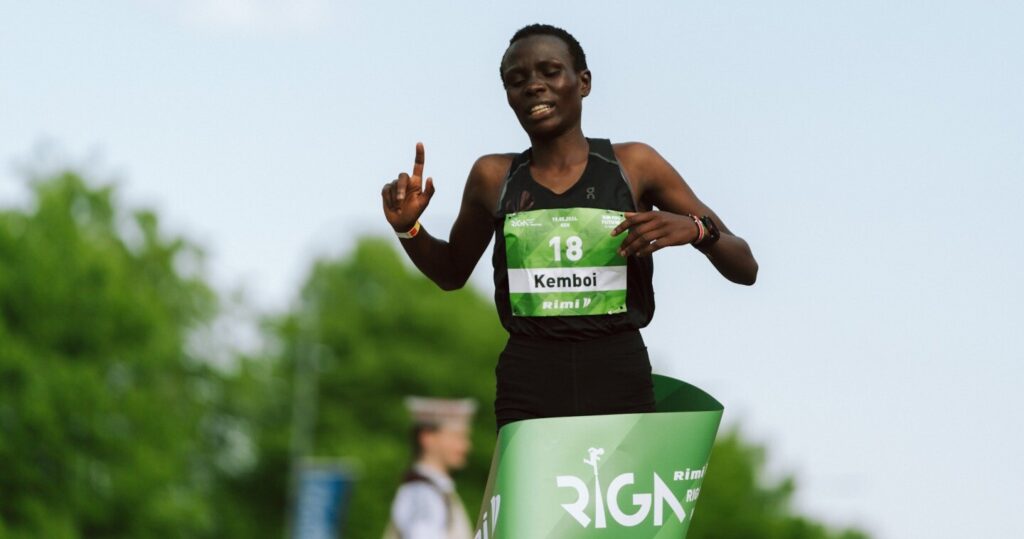Kenyan long-distance runner Judy Jelagat has been provisionally suspended after testing positive for a banned substance, marking another setback in Kenya’s ongoing battle against doping in athletics.
The 26-year-old, who has enjoyed a breakout 2025 season with multiple podium finishes, tested positive for Hydrochlorothiazide a diuretic commonly used to accelerate weight loss and potentially mask the presence of other performance-enhancing substances. Her suspension comes at a critical moment in her career, with three high-profile half marathons under her belt this year.
Jelagat began 2025 with a strong performance at the Ras Al Khaimah Half Marathon in the United Arab Emirates, where she secured second place with a time of 1:06:34. She followed this up with a victory at the Guadalajara Half Marathon in February, clocking 1:07:45. In April, she claimed third place at the Istanbul Half Marathon, finishing in 1:07:47.
The provisional suspension puts her future in athletics in jeopardy and raises further concerns about doping in Kenyan distance running. Jelagat is the third Kenyan athlete in just a month to face a doping allegation, reflecting a worrying trend in a country known for its dominance in long-distance running.
Last month, another major name world record holder Ruth Chepngetich was also provisionally suspended for testing positive for Hydrochlorothiazide. Meanwhile, Charles Kipkurui Langat received a two-year ban after testing positive for testosterone, highlighting the scale of the issue within Kenyan athletics.
These developments underline the challenges Kenya continues to face in its anti-doping efforts, despite increased scrutiny and pressure from international athletics bodies. The repeated violations have cast a shadow over the country’s otherwise stellar reputation in global athletics and raised questions about the effectiveness of current anti-doping measures.
Jelagat now awaits the outcome of her case, which will determine whether she faces a full ban or is cleared to return to competition. Her situation adds urgency to calls for more robust testing, better education for athletes, and stricter enforcement to safeguard the integrity of the sport.
As the Athletics Integrity Unit intensifies its crackdown, all eyes remain on how Kenyan authorities and athletes respond to these mounting challenges.

